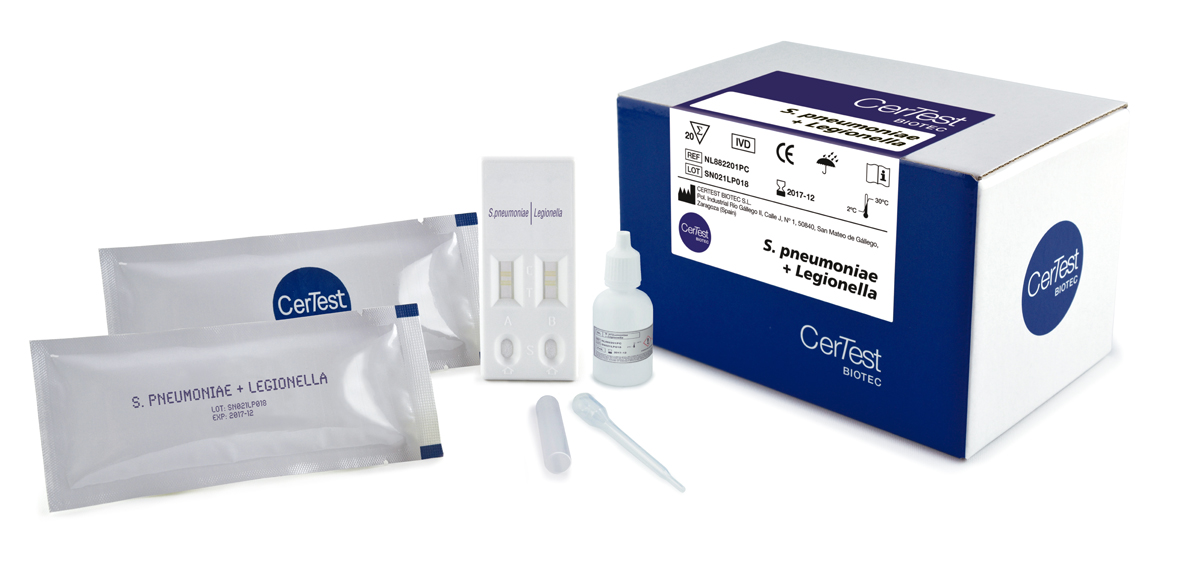
Rapid Test
S. pneumoniae + Legionella

Description
CerTest S. pneumoniae+Legionella one step combo card test is a coloured chromatographic immunoassay for the simultaneous qualitative detection of Streptococcus pneumoniae and Legionella pneumophila serogroup 1 in human urine samples.
CerTest S. pneumoniae+Legionella combo card test offers a simple and highly sensitive screening assay to make a presumptive diagnosis of pneumoniae and/or legionellosis in infected humans.
Specifications
Information
Gram positive bacteria, Streptococcus pneumoniae is one of the most important pathogen that affects mainly children and elderly and can cause life-threatening diseases. Streptococcus pneumoniae infection leads to many clinical manifestations including meningitis, septicaemia, bacteraemia, pneumonia, acute otitis media, and sinusitis. It has caused great morbidity and mortality worldwide, especially in children.
Pneumococcal infection annually has caused approximately 14.5 million cases of invasive pneumococcal disease (IPD) and 0.7–1 million
deaths in children under five years old, mostly in developing and underdeveloped countries.
Based on differences in the polysaccharide capsules of the pneumococcal cell wall, Streptococcus pneumoniae is classified into over 90 serotypes, which present different antigenic properties and induce different inflammatory responses.
Legionnaires’ Disease, named after the outbreak in 1976 at the American Legion convention in Philadelphia, is caused by Legionella pneumophila and is characterized as an acute febrile respiratory illness ranging in severity from mild illness to fatal pneumonia. The disease occurs in both epidemic and endemic forms and sporadic cases are not easily differentiated from other respiratory infections by clinical symptoms.
An estimated 25,000 to 100,000 cases of Legionella infection occur in the United States annually. The resulting mortality rate, ranging from 25% to 40%, can be lowered if the disease is diagnosed rapidly and appropriate antimicrobial therapy is instituted early. Known risk factors include immunosuppression, cigarette smoking, alcohol consumption and concomitant pulmonary disease. The young and the elderly are particularly susceptible. Legionella pneumophila is responsible for 80-90% of reported cases of Legionella infection with serogroup 1 accounting for greater than 70% of all legionellosis. Current methods for the laboratory detection of pneumonia caused by Legionella pneumophila require a respiratory specimen (e.g. expectorated sputum, bronchial washing, transtracheal aspirate, lung biopsy) or paired sera (acute and convalescent) for an accurate diagnosis.
The CerTest S. pneumoniae+Legionella allow for early diagnosis of S. pneumoniae and/or Legionella pneumophila serogroup 1 infection through detection of some specific soluble antigens present in the urine of patients with S. pneumoniae and/or L. pneumophila.
The test is rapid, giving a result at 15 minutes, and utilizes a urine specimen which is convenient for collection, transport, and subsequent detection of early, as well as later, stages of disease.

